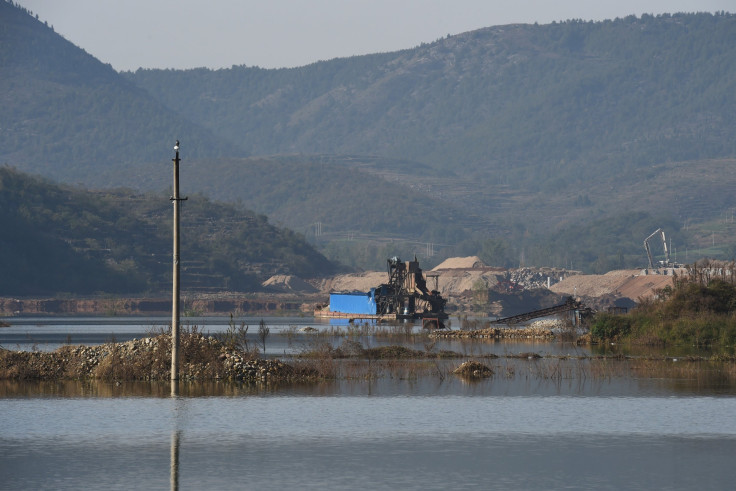Chinese Drinking Water Reservoir's Lead Levels 20 Times Higher Than WHO Standard: Study

Excessive levels of heavy metal pollutants have been found in a major Chinese reservoir that supplies drinking water to the capital Beijing and many other cities in northern China, according to a new study. Levels of lead found in the Danjiangkou reservoir in the Xichuan County, about 667 miles south of Beijing, are 20 times higher than the maximum safe level set by the World Health Organization (WHO).
The Danjiangkou reservoir contains more than 200 micrograms of lead in one liter of water, which is a 20-fold increase from 2007 to 2010, the South China Morning Post (SCMP) reported Wednesday, citing researchers. The WHO standard for a safe level of lead in water is 10 micrograms per liter, while China’s national surface water quality standards recommend lead levels to remain under 50 micrograms.
The study, which was published in the Journal of Environmental Informatics, revealed that levels of lead in the Danjiangkou reservoir exceeded all of these guidelines. The reservoir, which was constructed in 1958, supplies more than 60 percent of taps in Beijing, SCMP reported, citing the municipal government.
As part of the study, the researchers collected samples from eight locations across the reservoir. However, it was not clear how the findings relate to current drinking water in Beijing as the data collected by researchers dates back to 2010, SCMP reported.
The Danjiangkou reservoir began transferring water to Beijing in 2014. China’s Xinhua news agency reported at the time that the water from the reservoir will have to travel through an 870-mile channel for 17 days to reach the capital city.
Excessive levels of lead in drinking water can cause a variety of adverse health effects, especially in babies and children. It can result in delays in physical and mental development, along with slight deficits in attention span and learning abilities in children, according to the United States Environmental Protection Agency.
© Copyright IBTimes 2024. All rights reserved.






















